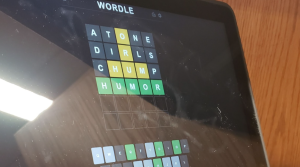Finals Tips and Tricks
December 18, 2019
As the end of 2019 approaches, we are all faced with incredible stress. Between the holidays, travel, and finals, students are panicked as the end of first semester approaches
Balancing school functions, vacations, assignments and finals can be difficult as most use this time to turn in missing assignments. This rush is an attempt to get their grades up as high as possible before finals to cushion their final grade.
Final exams test your knowledge on topics from the entire semester and even some over the entire year. Having to recall information that you learned months ago is difficult for most, which is why many students feel underprepared and stressed about finals.
“Its an overview of the entire semester, which some classes don’t prepare for… its just a lot,” Junior Shreya Pokharel said.
For Freshmen, finals can be even more stressful because they have never experienced finals.
“I’m so stressed… I’m very nervous about bombing a very important final and my grade dropping,” Freshmen Paige Ertle said.
Going into a final unprepared is nerve racking and lessens your ability to focus. This is why preparing and studying enough is crucial to success.
Teachers try to help students through these difficult times by giving reviews and opportunities for extra credit. AVID teachers prepare their students, encouraging students to find out details about their finals, such as the format, weight, etc. Knowing what to expect when you walk into your final is a big part of doing well. Going into a final unprepared is nerve racking and lessens your ability to focus, which is why preparing and studying enough is crucial to success during finals week.
Prioritizing finals and assignments is also important during this time of year. Staying focused and managing your time is key, as well as using effective study methods. Not all classes will benefit from the same method of studying. Use different methods that fit the class.
Group studying can be an extremely effective method of studying. It allows you to teach others what you know and for them to teach you what you don’t know. Effectively studying in groups is a good indicator that you know the material, and can allow for students to fill in holes of missing information.
“Collaboration is good if you are teaching your peers. If you can teach it, you know it,” AVID teacher Faith Vigil said.
Vigil also urges students to avoid cramming. Instead, replace it with gradual studying. Study for a set amount of time, take breaks and switch subjects periodically. Cramming rarely equals retention.
Our EHS administrators have instituted a “Wellness Week” to encourage students to stay calm and relieve stress through relaxing activities such as coloring, and yoga. “Wellness Week” will take place throughout the week leading up to finals and the week of finals.






